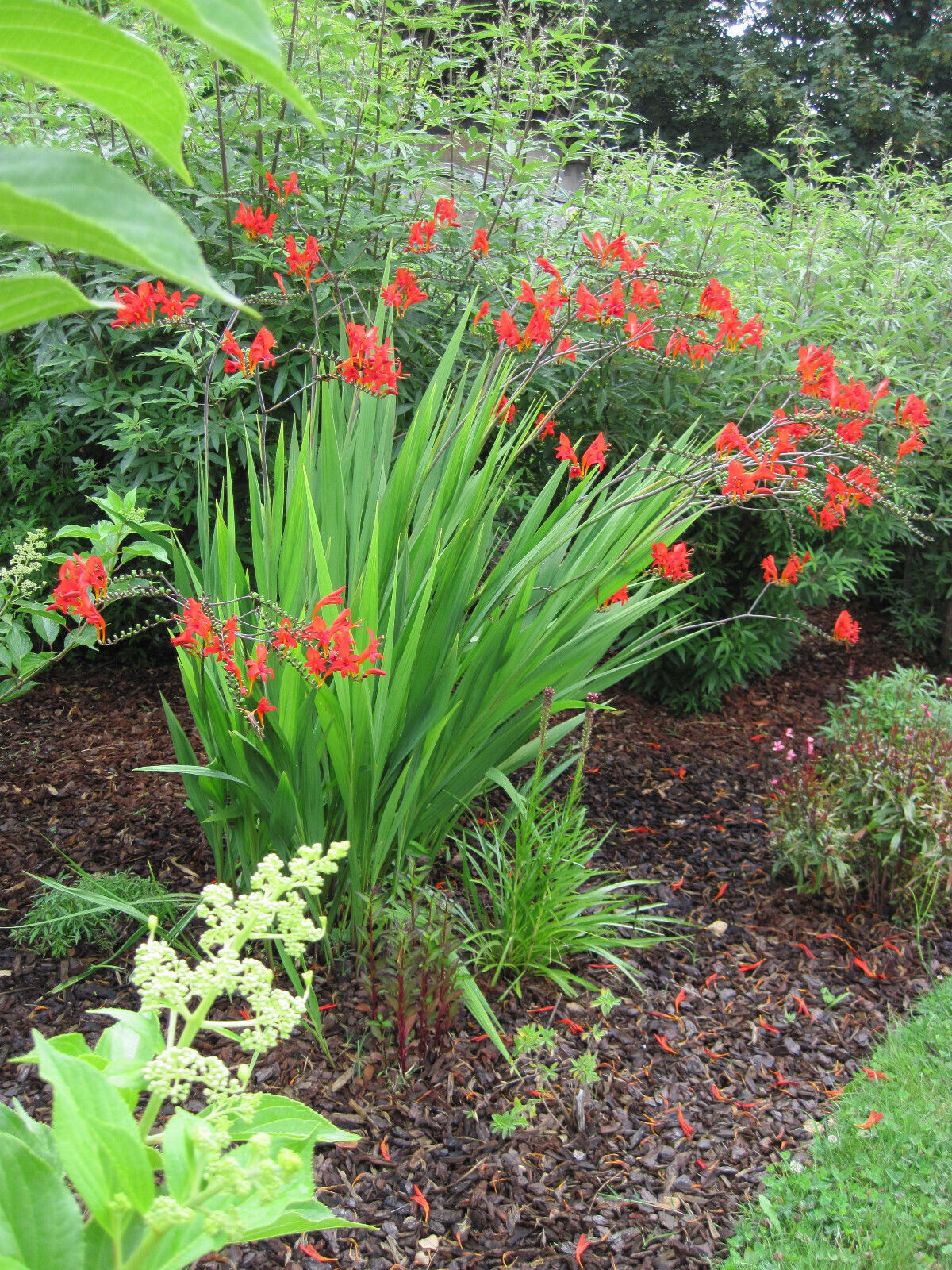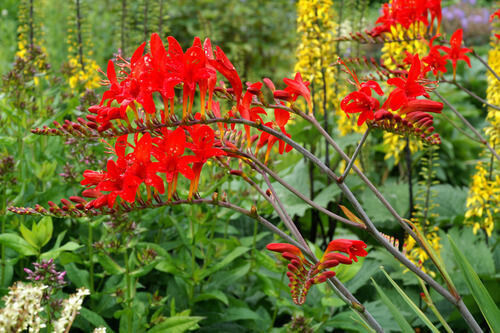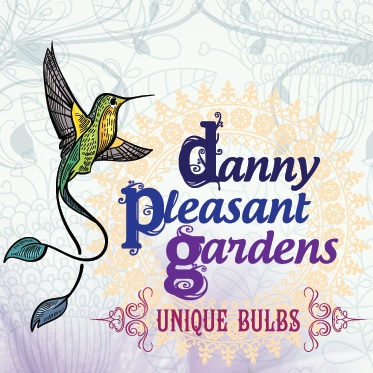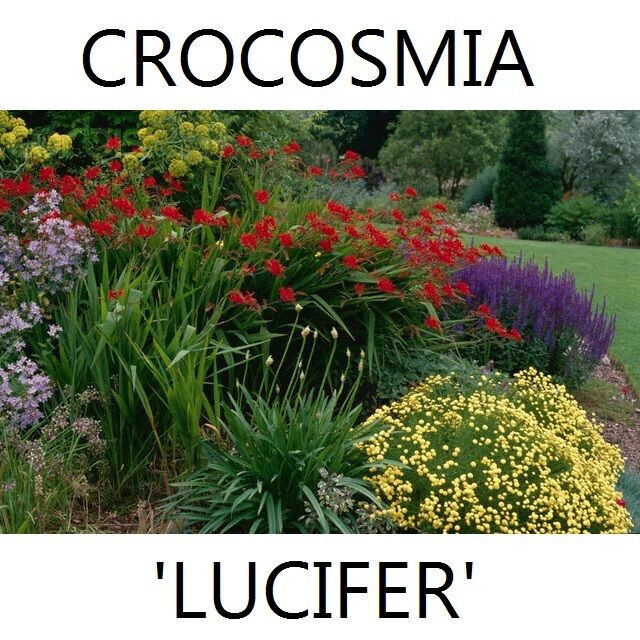
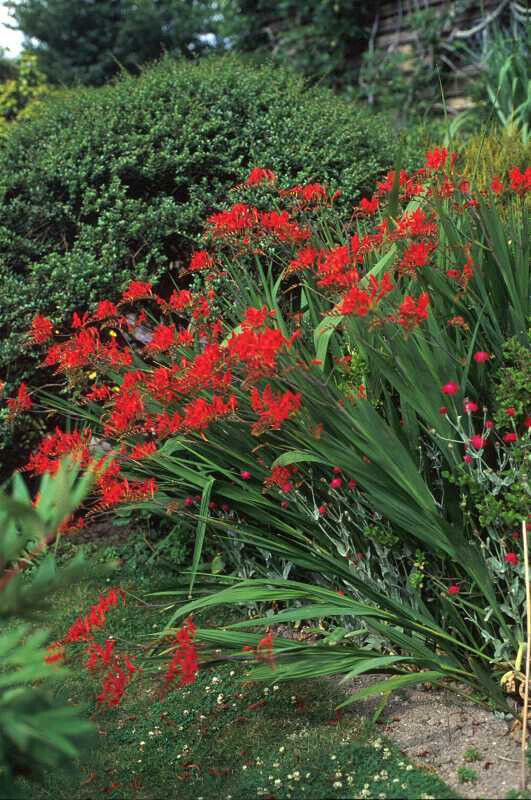
CROCOSMIA~LUCIFER~FLOWER BULBS~HARDY PERENNIAL~ATTRACT HUMMINGBIRDS~SUMMER BLOOM
BUY IT NOW, PRICE BREAK ON QUANTITY!!!
1 BULB * 3 BULBS * 6 BULBS * 12 BULBS OR 24 BULBS
- Botanical Name: Crocosmia 'Lucifer'
- Common Name: African Sword Lily, Montbretia
- Bloomtime: June to August
- Flower: Showy, Good Cut
- Plant Height: 2 to 4 feet
- Foliage: Dark green, sword like
- Plant size: Dormant Bulb 10/+cm in circumference
- Requirements: Full Sun or partial shade. Average, well drained soil. Medium moisture.
- Suggested use: Hummingbird garden, Perennial border
- Life-cycle: Perennial
- Multiply: Yes
- USDA Hardiness Zone: 5-9 (zone map below)
Grow in medium moisture, moderately fertile, well-drained soil in full sun to part shade. Prefers full sun, but appreciates part shade in hot summer climates. Plant corms in spring after last frost date approximately 3-4” deep and 6” apart. Not reliably winter hardy in USDA Zone 5 where it needs a protected location and winter mulch. In order to insure winter survival in USDA Zone 5 and perhaps Zone 6A, digging up the corms in fall and storing them in a dry medium over winter (in somewhat the same manner as gladiolus) is an option that may be considered.
Noteworthy Characteristics
Crocosmia is a genus or about 7 species of cormous plants from grasslands in South Africa. Montbretias are good fresh cut flowers which are frequently used in commercial flower arrangements.
Genus name comes from the Greek words krokos meaning saffron and osme meaning a smell for the smell of dried flowers steeped in warm water.
'Lucifer' is an Alan Bloom hybrid (Crocosmia x Curtonus) which has flowers and foliage that are similar to gladiolus. A clump-forming plant that features tubular, nodding, scarlet red, one-sided flowers borne along the upper portions of stiffly arching, sometimes branched, flower scapes (stems) typically rising up to 3' (infrequently to 4') tall and slightly above the narrow, sword-shaped, basal leaves.
Garden Uses
Provides color and contrast to the perennial border. May be grown in containers where lifting in winter is perhaps easier.

